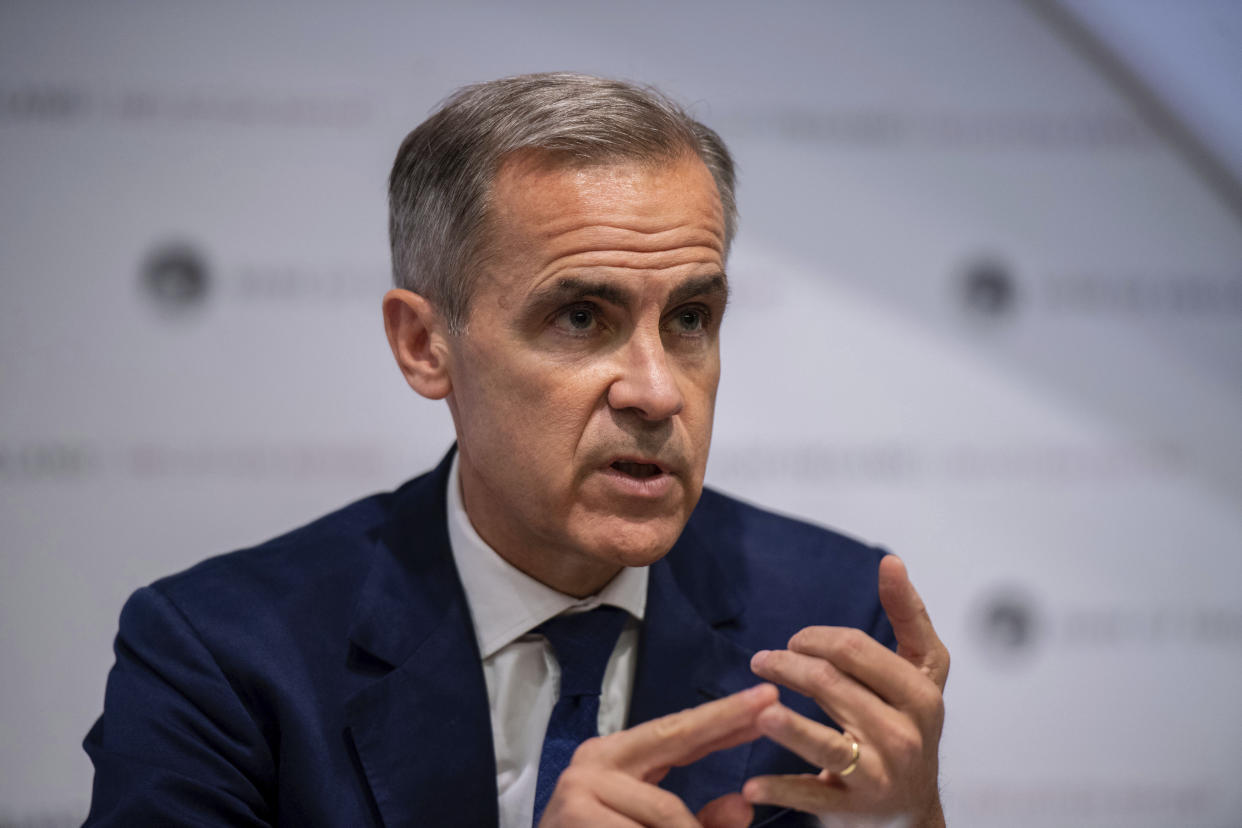Bank of England holds interest rates steady, says UK growth will pick up

The Bank of England on Thursday voted to hold interest rates steady at 0.75% and said that, since the likelihood of a no-deal Brexit had fallen markedly, it expected UK economic growth to pick up in 2020.
However, the bank lowered its forecasts for economic growth up to the end of 2022, saying that growth would now come in 1% lower than it had predicted in August.
And in an unexpected sign of discord within the bank, two members of the monetary policy committee voted to lower interest rates. Such decisions of the bank have in recent times been taken unanimously.
As a whole, the committee signalled that it was more willing to take measures to stimulate the UK economy “if global growth failed to stabilise or if Brexit uncertainties remain entrenched.”
Such stimulus measures would likely include interest rate cuts, even though the bank has long signalled that it expected to increase rates gradually.
The bank on Thursday also softened its language on the prospect of interest rate cuts, saying they “might” be necessary if global growth improved and Brexit uncertainty abated.
It had previously said they “would” be necessary in order to keep UK inflation in check.
The two members who voted to cut interest rates, Michael Saunders and Jonathan Haskel, are both external members of the committee.
They cited risks from Brexit, a slowing in global growth, and signs of a weaker job market in the UK as reasons for their decision.
Commenting on the country’s growth prospects, the committee said that the Brexit deal and flexible extension negotiated by prime minister Boris Johnson was likely to reduce uncertainty.
“As a consequence, the perceived likelihood of a no-deal Brexit has fallen markedly and the sterling exchange rate has appreciated,” the bank said.
“These agreements are expected to remove some of the uncertainty facing businesses and households, and the MPC projects that UK GDP growth will pick up during 2020.”
Uncertainty about the shape of the UK’s post-Brexit relationship with the EU has weakened the pound and dented economic confidence since the June 2016 referendum.
The bank said on Thursday that economic growth had been “volatile” in 2019, primarily because of Brexit-related factors. But it warned that, even then, growth had “slowed materially” over the past 12 months.


